Nigeria Ward Development Committees Drive Community Action by Helping Women Get to Health Services
In Bauchi State, Nigeria, pregnant women in rural areas struggle to access reproductive, maternal, neonatal, child health, and nutrition (RMNCH+N) services due to challenging terrain, seasonal hindrances such as flooding, and, above all, the high cost of transport services to health facilities. These barriers can be life-threatening if a woman cannot access prompt, necessary care.
Since 2019, the United States Agency for International for Development (USAID)-funded social and behavior change project Breakthrough ACTION has collaborated with Nigerian Ward Development Committees (WDCs) to expand communities’ ability to address barriers to health care and access. WDCs, an initiative of Nigeria’s National Primary Health Care Development Agency, consist of local community members and are responsible for organizing and managing health and development activities in Nigerian municipalities called wards. Breakthrough ACTION-Nigeria has guided 289 WDCs across Bauchi, Kebbi, Sokoto, and Ebonyi States and the Federal Capital Territory to define and resolve priority challenges related to RMNCH+N and address barriers in particular to maternal health care by helping them develop Community Health Action Resource Plans, which gives them a blueprint to action and follow-up on their initiatives.
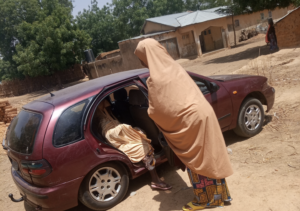
Hajiya Baballiya, a volunteer driver, gets into the car she uses to transport women to the health facility. Photo credit: Breakthrough ACTION-Nigeria
To help more women get to health services, WDCs worked with the National Union of Road Transport Workers to operate a community-based emergency transport system (ETS) which is available and accessible to all 24/7. These ETS drivers—whether union members or independent vehicle operators—volunteer their time, for free. Due to the WDCs’ efforts, the number of pregnant women the ETS transports is growing.
However, one setback to increasing this growth is a lack of women’s participation in this activity. Community members often see women working in non-traditional roles, such as for ETS drivers, as going against the grain.
In the pool of WDC-trained ETS drivers, Hajiya Baballiya is the only woman. However, one of the biggest advantages Hajiya Baballiya has over her male counterparts is she can access households and community events where only women participate. This allows her to reach women more directly to create awareness on how to improve RMNCH+N behaviors, make referrals, and follow up with the women she reaches. Her unique role underscores her commitment to improving the health outcomes of her community and highlights the crucial role that women play in driving positive change. From January to November 2022 alone, Hajiya Baballiya transported 211 people to Raga and Federal Medical Centre Azare, Bauchi State, at no cost to them. Fifty-six were pregnant women.
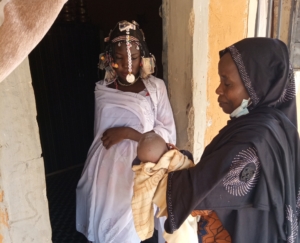
Hajiya Baballiya, emergency transport drive, holds the newborn baby of a woman she drove to the health facility. Photo credit: Breakthrough ACTION-Nigeria
As a result of Breakthrough ACTION-Nigeria’s efforts and that of drivers like Baballiya, the WDCs’ ETS program has transported 23,083 women for antenatal care, 15,989 women to facilities for child delivery, and 16,279 children under five years old to health services. In a continuous bid to support women and children in accessing health care services, Breakthrough ACTION-Nigeria will continue to collaborate with WDCs to support gender integration and expand the pool of women ETS drivers in Bauchi and other states.

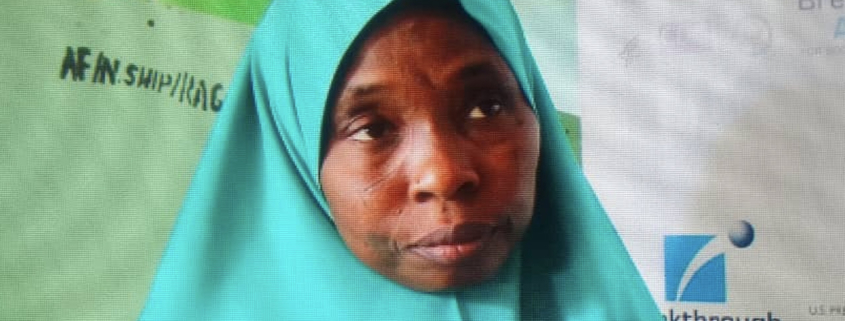 Breakthrough ACTION-Nigeria
Breakthrough ACTION-Nigeria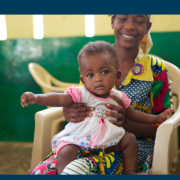 Sara Holbak/VectorWorks/Photoshare
Sara Holbak/VectorWorks/Photoshare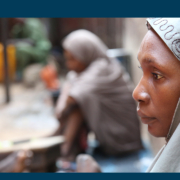
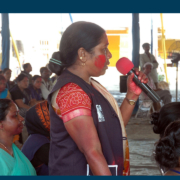 Gopal Bhattacharjee/Photoshare
Gopal Bhattacharjee/Photoshare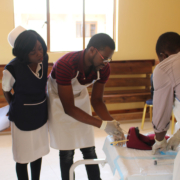
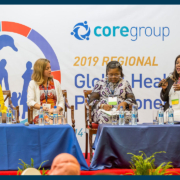 2019 CORE Group Global Health Practitioner Conference
2019 CORE Group Global Health Practitioner Conference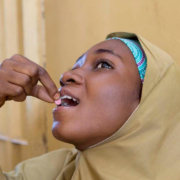 WHO
WHO